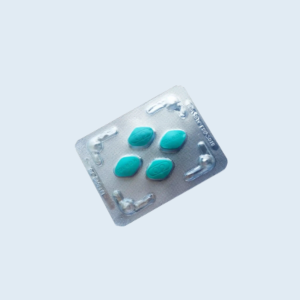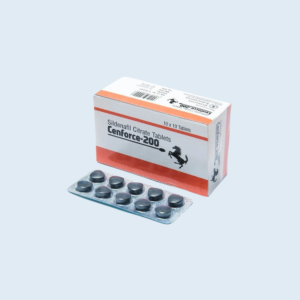Dapoxetine 60mg Tablets.
Take Back Control and Confidence: A Fresh Start in Your Sex Life with Dapoxetine 60mg Tablets.
Do you have a problem with premature ejaculation (PE)? You are not alone. PE is among the sexual health issues that are relatively widespread among men and a substantial percentage of men develop PE at some stage in their lives. It may cause frustration, humiliation, anxiety and relationship straining. The need to find an efficient solution that is reliable enough may become overwhelming.
The wait is over. Dapoxetine 60mg pills can be considered a breakthrough development, which is directly aimed at tackling this controversial question. It is not only a supplement or a general antidepressant, but rather the first and the only oral treatment in many countries endorsed to treat premature ejaculation on demand.
What is Dapoxetine 60mg?
Dapoxetine is a selective serotonin reuptake inhibitor (SSRI). Dapoxetine is, however, unlike the traditional SSRIs used in the treatment of depression that are used daily because it has a fast absorption and elimination rate. This particular pharmacokinetic profile is the one that would make it the best fit as an on-demand drug, in other words, you only take it when you need it, 1 to 3 hours prior to anticipated sexual activity.
Most men are well treated with the 60mg dosage which is standard and the most effective strength giving a potent effect that can be managed to make ejaculation take a long time.
How Does Dapoxetine 60mg Perform Its Magic?
Dapoxetine has a science that revolves around the neurotransmitter serotonin that is instrumental in the regulation of mood, anxiety and ejaculatory reflex. The increase in serotonin in the brain is linked to an increase in delaying ejaculation.
- Quickly: You once a day take one tablet with a full glass of water.
- Serotonin Increase: Dapoxetine is an antagonist of serotonin reuptake in the brain. This implies that there will be increased availability of serotonin in the gaps between nerve cells.
- Delayed Ejaculation: The elevated serotonin level has a positive effect in suppressing the nervous stimulation of ejaculation reflex thus giving you more voluntary control of ejaculation.
- Quick Exit: It gets out of your system very fast and the risk of accumulating side effects is reduced.
The major advantages of selecting Dapoxetine 60mg are:
- Notably Enhanced IELT: IELT (Intravaginal Ejaculatory Latency Time) is the PE clinical measure. Research indicates that Dapoxetine 60mg will boost the IELT between 3-4 times and add a lot more satisfaction to the sexual activity that lasts in the seconds or minutes long.
- Better Control: Experience a better level of control over ejaculation. It is an important psychological advantage which can be as much as the physical.
- Better Sex: Your own, and that of your partner. There is more confidence and less anxiety based on the stage of performance, and this results in a more satisfying and enjoyable intimate life.
- Convenience On-Demand: Does not require taking medicine daily. Only when you are going to have sex, take it.
- Clinical Proven: Dapoxetine has a long history of clinical trials and is a prescription drug meaning that its safety profile and efficacy have been well-recorded.
Who is Dapoxetine 60mg For?
It is prescribed to adult men (18-64 years) experiencing premature ejaculation which is defined as:
- Constant or repeated failure to withhold ejaculation.
- Lifetime ejaculation (PE) of less than one minute (Lifetime PE) or three minutes (acquired PE).
- Personal negative effects (distress, bother, frustration, and/or sexual intimacy avoidance).
Important Usage Guidelines:
- Dosage: The dosage is 60mg orally. Your physician can increase it to 30mg in case of side effects or in some situations, increase it to 90mg while 60mg is tolerated well but not effective.
- Time: The patient should take the pill 1 to 3 hours prior to having sexual intercourse. Take not more than one tablet per 24 hours.
- Routes of administration: Take the tablet entirely in a full glass of water. Do not crush or chew it.
- With or Without Food: It may be either with or without food, but be regular. Having it at the same time as a meal can minimize the possibility of nausea.
Potential Side Effects:
Similar to all good drugs, Dapoxetine has side effects but not all patients experience them. The majority of them are mild to moderate and are likely to diminish as they are continued to be used. Common side effects include:
- Nausea
- Dizziness
- Headache
- Diarrhea
- Dry mouth
- Insomnia
These are usually temporary. One should not drink alcohol and take Dapoxetine as it may greatly exacerbate the feeling of lightheadedness and dizziness.
Precautions and Contraindications: SAFETY FIRST!
Dapoxetine is a prescription drug. Never self-medicate.
- See a Doctor: A doctor should examine your health since Dapoxetine might not be safe to you.
- Heart Conditions: Men with severe heart issues such as heart failure, conduction abnormalities, or history of heart attack or stroke are discouraged to use it.
- Interactions: Report all other medicines that you take, particularly other antidepressants (SSRIs, SNRIs, MAOIs), mood stabilizers, herbal supplements (such as St. John’s Wort) and antimigrain pills or antifungal pills. Serious exchanges may take place.
- Liver and Kidney Problems: Men with liver or kidney problems need to be adjusted in the dosage.
- Mental Health: Make sure that you report any history of mood disorders, depression or suicidal thoughts to your doctor.
A lesson from former presidents. Invest in Your Confidence.
There is no need that premature ejaculation should characterize your sexual life. Dapoxetine 60mg is a scientifically-proven, effective and easy way of getting your control back, improving your confidence, and changing your intimate relationships. It is an instrument that enables you to live longer and have fun.
Make the first step towards a more confident you. Talk to a licensed medical practitioner now to determine whether Dapoxetine 60mg is the right medication to use.















peterkirby155 –
Very Efficient and fast company.
Their products works well.